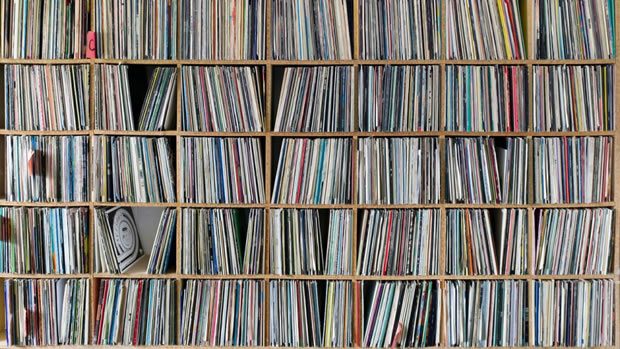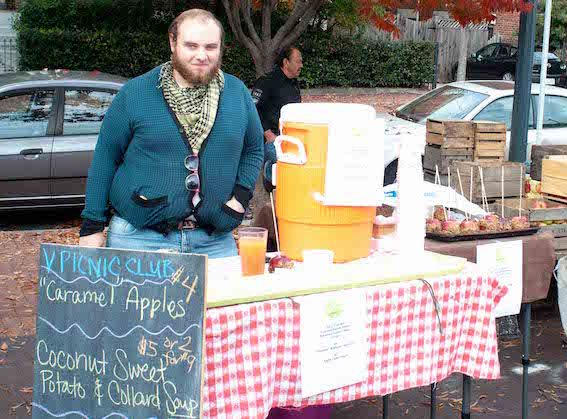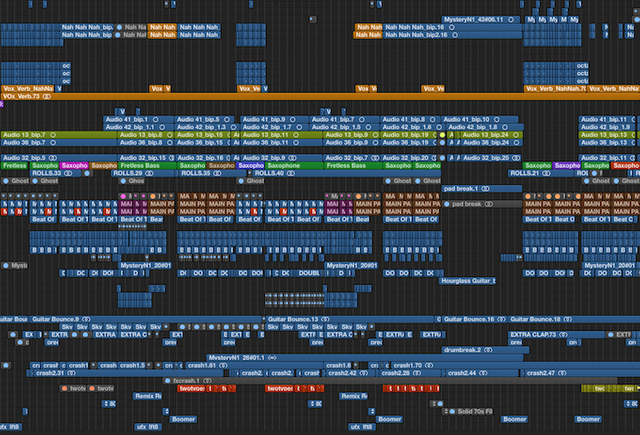Music, the Blockchain and a whole lot of MIBS

Coming from a creative and computing background (yes a little left of centre), a while ago I came across #Bitcoin and blockchain. Upon reading more about the roots of the movement and also the potential applications I decided that I had to get more involved. It's my opinion that blockchain will change the world as we know it. (Full disclosure I am a superblockfan, so much so that I recently setup a blockchain business with a friend of mine!)
Anyhow.. the blockchain, the new buzzword awash across tech circles, has barely scratched the surface of the general populous. To most (read 99.99%) of the population, the word blockchain means nothing. I know this may upset some (me included), especially whilst writing this on Steemit, a blockchain social media site, but the notion of blockchain is very niche at the moment. Bitcoin is usually my ice breaker, responses vary from good - "oh yeah i heard of that" to OK - "that money that doesn't exist anywhere" and bad - "bitcoin, criminal online cash". Should this type of conversation proceed onto the topic of blockchain the overwhelming response from people is "blockchain... block whaaaat.... whaaaat???" followed by a series of facial expressions that look like a cross between someone doing a number 2 and their internal computer shutting down...
The blockchain is the new tech sectors darling, we understand it and shout it from the rooftops. Don't get me wrong, blockchain is amazing tech that I believe will change the way the world works in many ways, BUT, there is a long way to go in real world explanation and application of blockchain. There are many applications across finance, networking and law that are making headlines on a daily basis, however I believe there is another sector, the music industry that will benefit greatly from blockchain technology, in many different ways:

Music needs cataloguing. Both record labels and collection societies have a lot of trouble tracking titles and reporting in a timely manner. I'm going to talk about collection societies and the songs they are supposed to track, but the same principals apply to both.
At the moment musical song works are catalogued in centralised databases. The main reason for cataloguing songs is so that song writers can get paid for use of their songs, be it across streaming platforms to radio/TV. As a musician I can tell you first hand how inefficient collection of songwriters royalties is. There have been times my songs have been played in certain territories and I have never seen a penny from the collection societies, despite the song being registered correctly. There are also other times that it has taken nearly THREE YEARS (yes you read correctly), to receive payment for certain overseas plays. In any other line of work, waiting to get paid for 3 years would probably mean you'd have quit a long time ago (and possibly taken the person that owed you money to court!!). This said, at the moment it is very difficult for collection societies like PRS in the United Kingdom, to identify songs that are played on radio/TV across the world and once identified to collect on those plays. A Music Identity Blockchain Solution (MIBS) would solve this problem. PRS are currently working on their own solution.
My two cents on the rough architecture of a potential worldwide MIBS:
a. Each country shares the same blockchain for musical identity registration.
b. Each country can nominate new titles which are cross checked against existing work titles, not only using artist name, song length etc but also a digital copy of the waveform (something similar but more advanced than Shazam). This would ensure no two same versions of a song are ever recorded twice in the blockchain.
c. Songs that have sampled other songs would have their own category and these entries would be derived from the songs they were created from.
d. Each content aggregator and producer (TV/radio/streaming etc), before being granted a license to use music in a country must connect to the MIBS, and use the MIBS unique song ID when playing the song.
e. The MIBS records all plays which are only available to the performing rights societies and a smart contract automatically bills the content service provider for their usage once a month.
The efficiency is almost making me dizzy! Ha! I jest but when you're used to waiting up to 3 years for payment, this kind of solution is the creme de la creme of songwriter revenue collection.

Now we have our MIBS which has multiple identifiers per song, and content providers can only use music once they sign up to the MIBS (bear in mind anyone publicly broadcasting already needs a license), we can stop a large swathe of pesky little pirates and monetise their usage (much like YouTube does now). Yes content ID systems exist now but they are not in full scale uniform use, have varying degrees of reporting accuracy and don't deal with international music catalogues in totality.

Another solution is to bypass content aggregators and collection societies in their entirety and allow musicians to promote directly to fans, distributing proceeds directly to creators through smart contracts and digital currencies not dis-similar to Steemit. Blockchain tech can allow seamless interaction between content creators, content consumers and potential licensors. Ujo and others are working on such systems at the moment and I have high hopes that they can receive wide adoption within the music community.

The image above is a screenshot from my latest single. As you can see everything is lined up in blocks! Slightly out of left field, but bear with me, I think musical records share similarities with blockchain tech. Music is built with "blocks"; drums, bass, piano etc which are all committed to a record (the musical blockchain). Once each part has been committed to the record, it is permanent, no changes can be made. In this way I see each record as it's own mini little blockchain.
With the musical block analogy in mind, and taking a step back, I think blockchain can be a potential tool for creatives themselves. Imagine a worldwide de-centralised music repository; a lyric and sample library which includes drum tracks, bass tracks, vocals, lyrics etc. Users would be allowed to access and add to this blockchain and create new uniquely identifiable "blocks" of music on the blockchain. This could be done by:
a. Adding original music to the library.
b. Combining existing blocks in new unique ways.
c. Combing original blocks with existing blocks.
Each new musical work would be committed to the blockchain and could be used over and again. In some ways modern music software has begun this process but I think the blockchain and its decentralised nature could become an invaluable tool for musicians to share millions of musical blocks, that others can use in a trackable and traceable way. The creative permutations would be endless and everyone would get rewarded for their part because each block would be uniquely identifiable (and hopefully part of MIBS!).
As with all new technology, blockchain is exploring the possibilities of real life application. I think these are exciting times and the music industry is definitely going to be transformed, be it from the top down or the bottom up, the future is bright for music, blockchain and MIBS!
For more info on Ujo go here -> https://ujomusic.com
My crypto business -> https://yougocrypto.com
P.S. If you liked this article feel free to repost but please do give the source URL. Thanks!
Nice article!By the way,I have upvoted your post,can you upvote my new post? Thanks